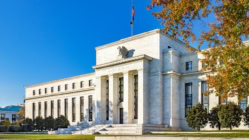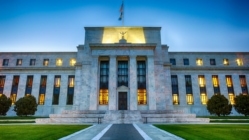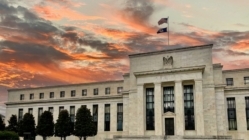Rates are way up this morning again, and nobody is happier about that than me – even though these high rates are extremely costly for JVM and the mortgage and real estate industries.
On Saturday, I expected rates to be much lower today because I was reading all of the WW III predictions on X in response to Iran’s attack on Israel – and it certainly seemed like things were bound to escalate.
As most readers know, Iran attacked Israel with 170 explosive-laden drones and 150 missiles. But most were intercepted, and thankfully, nobody died.
While the lack of destruction is partially due to the success of defense technology, it was also due to the fact that Iran seems to have purposely telegraphed the attack hours before it took place (they warned the U.S directly and they started the attack with slow-moving drones, giving Israel ample time to ready its defenses).
So, it seems like the attack was partially a face-saving gesture on the part of Iran, ostensibly so the Iranian leaders could show their people and the Arab world that they were responding to Israel’s recent attack on the Iranian embassy a few weeks ago.
And investors seem to believe that because normally the initial response to a war is a sharp drop in interest rates. This is because severe geopolitical tensions create tremendous uncertainty, so investors move to the “safety” of bonds and leave stocks. And when the demand for bonds increases, the price of bonds goes up and yields/interest rates fall. This is what happened when Russia invaded Ukraine for example.
Important Notes: (1) I am oversimplifying the above for brevity’s sake, as there are many more factors, I am just repeating observations I saw on X, and I am not an expert; (2) I am not taking sides in any way, nor am I am making light of the seriousness of the matter; and (3) Israel could still retaliate and spark an escalation that very well could bring down rates.
Note also that wars are often inflationary for a variety of reasons, so the drop in rates is often temporary, as bond yields rise in response to inflation concerns.
The Price of Gold
The price of gold shot way up in the month preceding the attack, hitting an all-time record on Friday of almost $2,450 per ounce. Analysts were very concerned about the sudden rise in price, as such price increases often portend serious crises. I personally listened to dozens of interviews in which analysts would gravely speculate about what was happening.
- Collapse of Dollar: Fund manager, gold bug, and perennial doomsayer Peter Schiff was 100% convinced that the final collapse of the U.S. dollar was upon us and that everyone was buying gold to protect themselves.
- Foreigners Protecting Themselves Against Their Own Currency Collapse: Brent Johnson, of dollar milkshake fame, insisted that the price increase was a result of overseas investors (particularly Asian investors) protecting themselves from the collapse of their own currencies. Johnson pointed out that most of the demand for gold was overseas.
- Hedging for War: Former “Fed Guy,” Joseph Wang speculated last week that it was investors expecting a war and thus using gold for a “safe haven” investment (instead of the 10 Year Treasury).
And – the winner is…. Joseph Wang. I say this because the price of gold fell by almost $100 over the weekend as soon as it appeared that the situation in Israel would not escalate (in the near term at least).
But what is interesting to me is that so many investors seem to have known that Iran would attack Israel long before it was obvious.
What Do Billionaire Fund Managers Know? Why Aren’t Rates 3% Higher?
George Gammon often points how several billionaire hedge fund managers mysteriously loaded up on Treasuries in August of 2019 – months before the risk of the COVID crisis was known to the general public.
Gammon’s point is that these fund managers, with so much at stake, have their tentacles deep into every institution and organization to garner every tidbit of information that can move markets – long before the general public gets that same info.
And that appeared to the case with Iran and Israel and with COVID.
I share this because I find it so interesting – and also because if the economy really was exceptionally strong and inflation really was going to surge again – wouldn’t those same fund managers be running headlong away from Treasuries or at least demanding 3% higher yields?
I have no clue, and yields are moving higher, but there are still a lot of fund managers willing to buy a lot of sub-5% Treasuries (the 10 Year Yield is in the 4.6% range today).
























